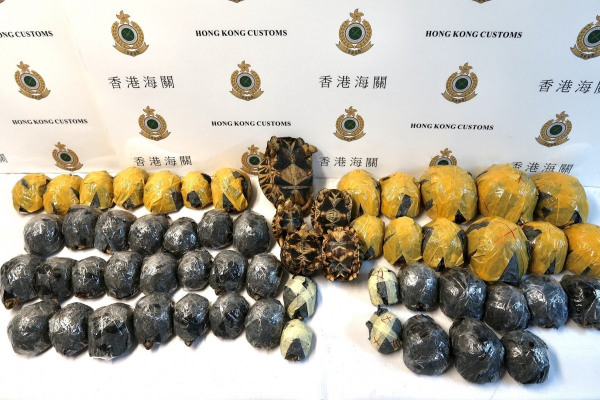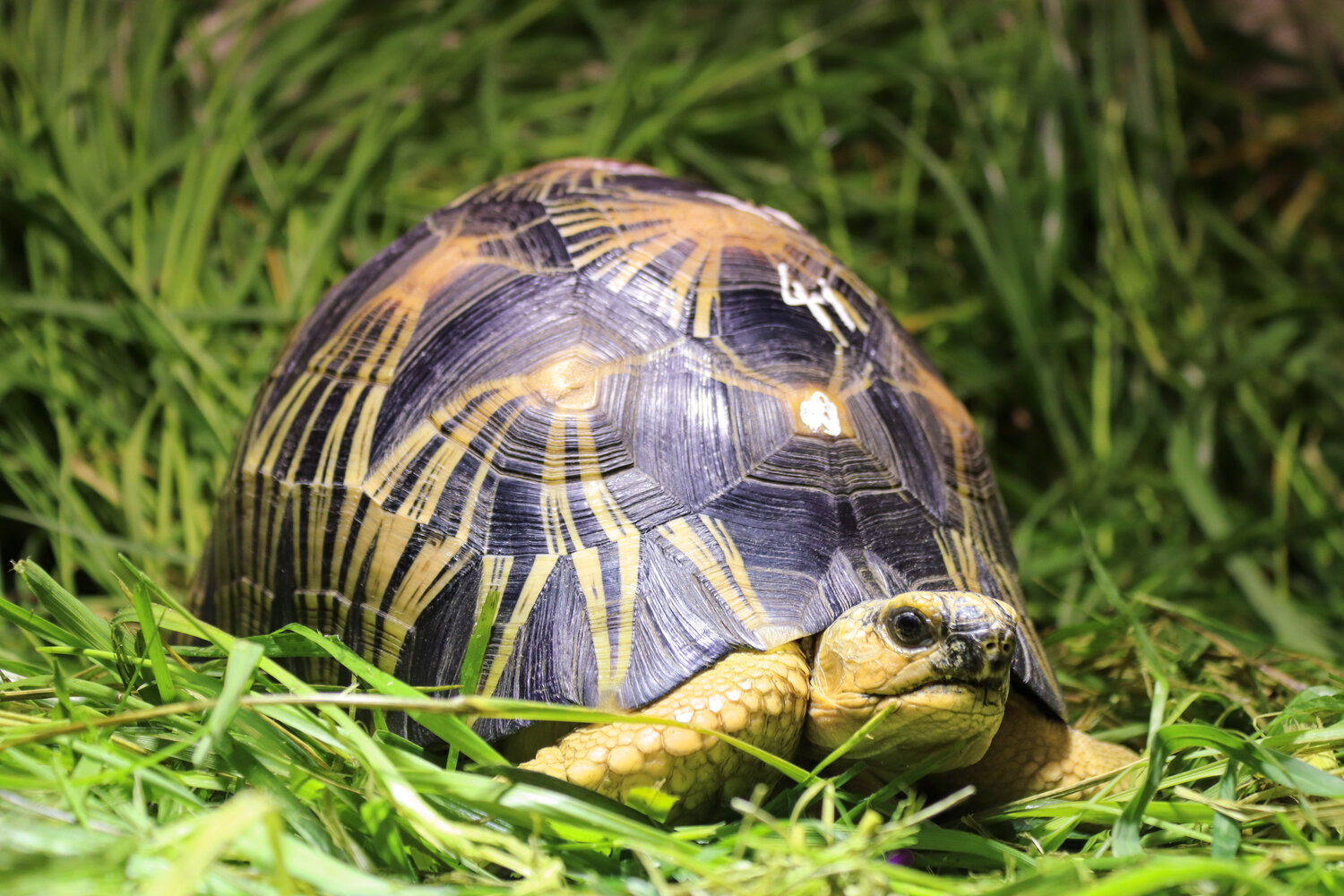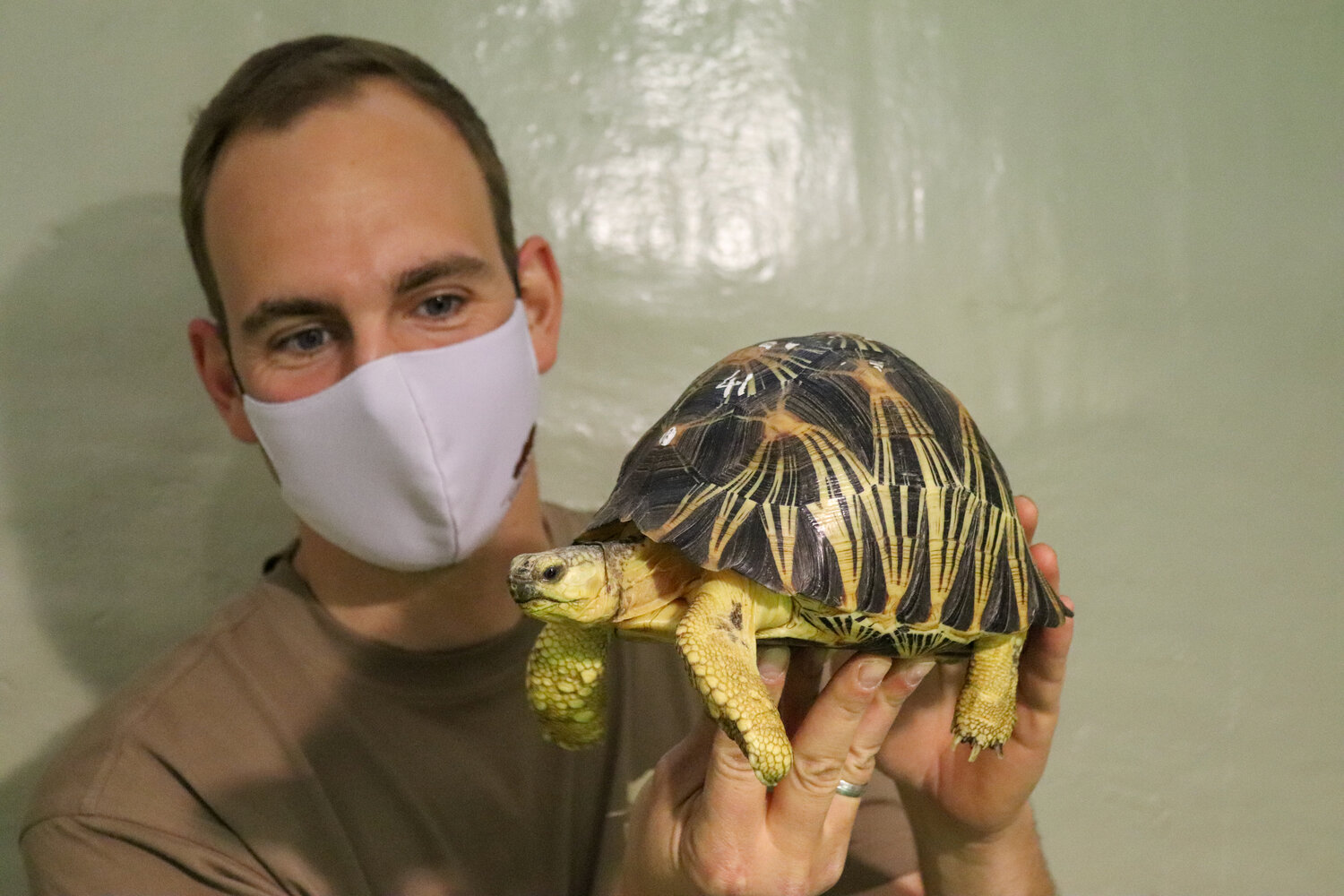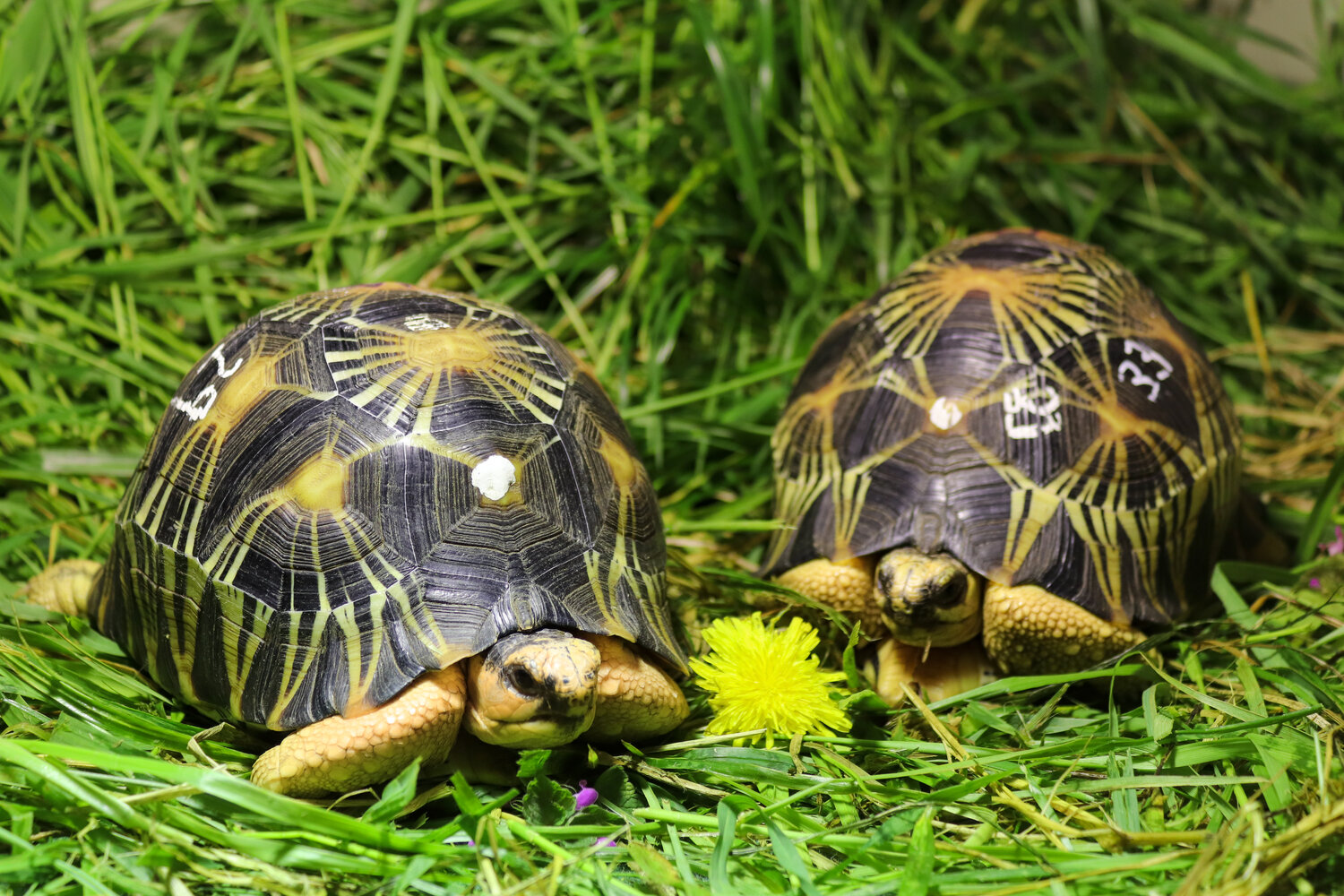An estimated one million animal and plant species worldwide are threatened with extinction. Besides habitat loss, the greatest threat to the survival of endangered animal species is the illegal wildlife trade. Smugglers are frequently caught with endangered species or animal parts stashed in their luggage. Turtles and tortoises are among the most commonly smuggled creatures. Now, a group of radiated tortoises, a seriously threatened species from Madagascar, have found a new home at Tierpark Berlin after being confiscated in Hong Kong.
In September 2019, 57 turtles were discovered bound with tape in a passenger’s luggage at Hong Kong Airport. They included two Madagascar angulated tortoises and 55 young radiated tortoises. Both species are listed as critically endangered by the International Union for Conservation of Nature (IUCN). The removal of these animals from their natural habitat and their sale are prohibited under the Convention on International Trade in Endangered Species. It is assumed that the tortoises were illegally taken from their natural habitat in order to be put up for sale on the international pet market. Various official permits had to be issued before some of the confiscated tortoises could be transferred to Germany.
Due to the fragile humanitarian situation in Madagascar, the tortoises could not easily be released back into the wild. Around 25,000 tortoises are already being cared for at the rescue centre there, and the prospects for any tortoises released into the wild at this time are not promising. Their transfer to Germany allows the tortoises to be included in the European Endangered Species Programme (EEP) and thus become part of Tierpark Berlin’s own conservation efforts. “Animal extinction around the world is one of the most pressing issues of our time,” says Zoo and Tierpark Director Dr Andreas Knieriem. “If things keep going this way, the radiated tortoise will completely disappear from its natural habitat within the next four decades.” But if the right measures are adopted over the long term, the majority of animals threatened with extinction can be saved. “By breeding the animals entrusted to us, we hope to make an important contribution to the preservation of their species,” Knieriem adds.
Thankfully, the tortoises coped well with their long journey to Germany. “After tucking into a portion of wild herbs, the young tortoises were given a bath in lukewarm water,” says Tierpark curator Markus Klamt. “This is now a part of their daily ritual to help them adapt to the difference in humidity over here.” It was not possible to determine where exactly the tortoises came from and when they hatched, but they are estimated to be between two and ten years of age. The radiated tortoise owes its name to the striking pattern of yellow lines radiating from the center of each dark plate of its dome-like shell. This pattern provides the tortoises with optimal camouflage among the vegetation where they live. An adult radiated tortoise weighs up to 16 kg and these remarkable animals can live to the grand old age of 190. Radiated tortoises are native only to Madagascar, where they are mainly found in dry forests and thorn bush savannahs in the south of the country.
The Tierpark’s new residents are currently still in quarantine. They are expected to be on display to visitors from late May, when they will share a habitat at the Primate House with other Madagascan animals such as collared brown lemurs. By keeping such endangered animals, zoological facilities are doing important conservation work. They also support the survival of the animals in their natural habitats. The young radiated tortoises at Tierpark Berlin will now get the chance to grow big and strong and contribute to the preservation of their species by having young of their own. The smuggler, meanwhile, has paid dearly for his crime. Following his immediate arrest at the airport, he was subsequently sentenced to a fine and more than two years in prison. This is one of the harshest sentences ever handed down under Hong Kong’s animal welfare act.



